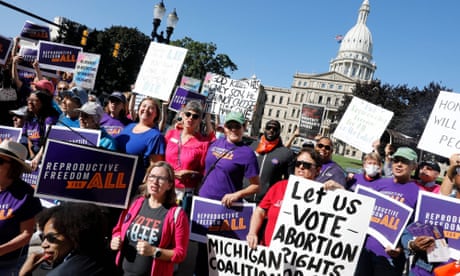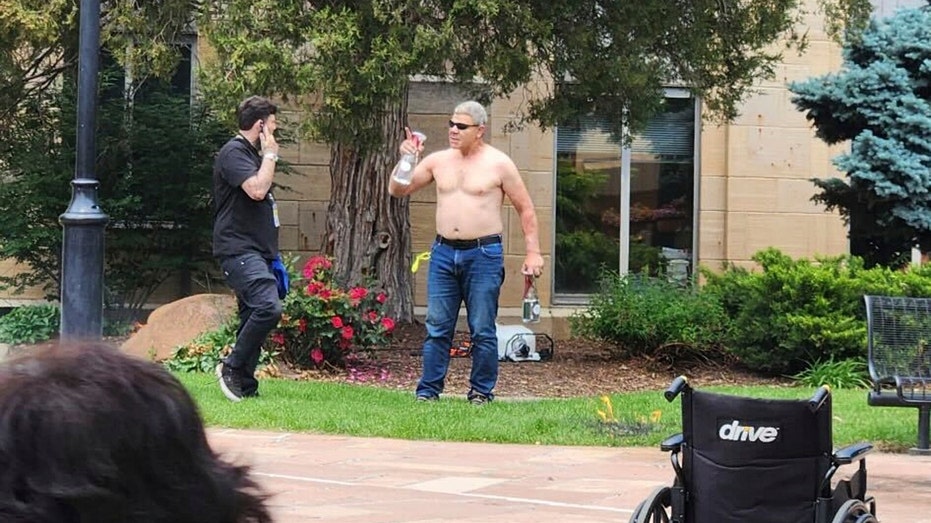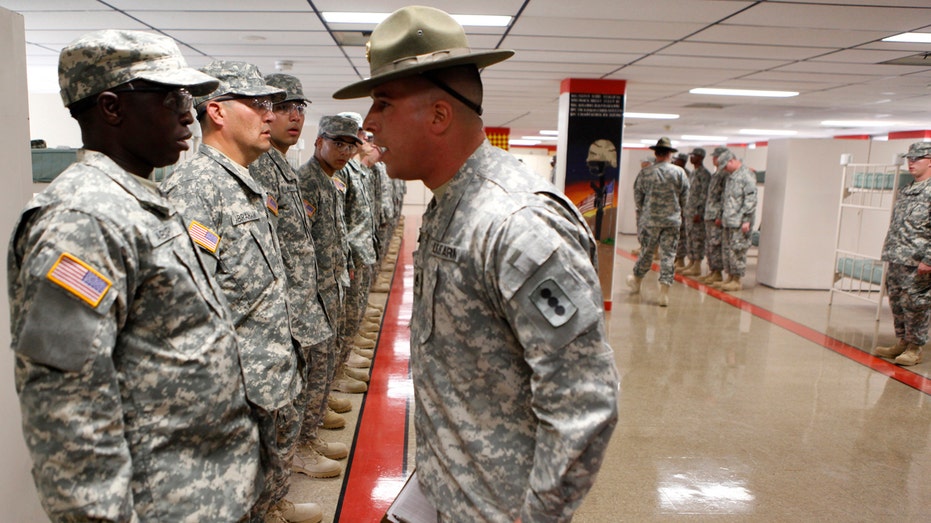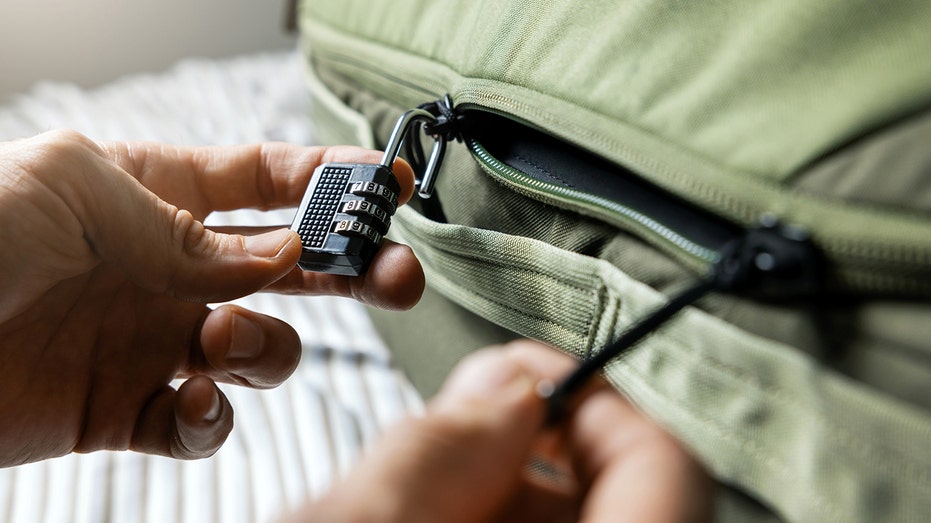- by foxnews
- 04 Jun 2025
Michigan Democrat’s lead shows abortion may be the issue that decides midterm races
Michigan Democrat’s lead shows abortion may be the issue that decides midterm races
- by theguardian
- 02 Nov 2022
- in news

Elissa Slotkin is a straight shooter. She doesn't miss a beat when asked a tough question. She speaks up often, and forcefully, against things she perceives as unjust - whether perpetrated by her opponents or her own Democratic party. But when asked what she'll think if the proposal to enshrine abortion rights in Michigan's state constitution doesn't pass this November, she clams up.
Slotkin fidgets, stroking one thumb over the other, in a repetitive, soothing motion.
Is she discombobulated?
"Yes," she answers, back to her usual, rapid-fire pace.
Why?
"I'll tell you this," Slotkin begins. "If it fails to pass, I won't be re-elected. Because it means I'm fundamentally out of touch."
She pauses, cautiously, and adds: "But I don't believe that to be the case. I think I'm going to win."
That's a big statement. Slotkin is running in one of the country's most tightly contested seats, as a Democrat who won Trump voters back from the Republican party in both 2018 and 2020.
She is also running in a midterm election full of twists and turns - one that has seen Democrats' hopes to avoid the typically poor showing of the party in power begin to rise, only to plummet again. But even with a mixed economy, rising inflation and unfavourable polling for the president, people are putting their money on Slotkin in huge numbers: the race for Michigan's seventh, a newly drawn district pitting Slotkin against state senator Tom Barrett, has become the most expensive race in the country in terms of outside spending. Outside spending, generally, is a good barometer for how important a race is, with the largest amounts coming from the national parties - and in the case of the seventh, $27m has been poured into the race.
The race had been neck-and-neck the whole time, but in September something strange happened: Slotkin surged by 18 points. She has held at least a six-point lead over Barrett ever since.
The key reason? Abortion.
"I've never seen anything like it," says Slotkin. "Everywhere I go, Democrats, Independents and Republicans are talking about this issue. They're talking about how scared they are of a 1931 abortion ban coming back in Michigan. They don't want it."
Across the country, the Democrats need to hold on to just a handful of congressional seats this year to keep a majority in the House of Representatives. That has made Michigan's seventh, and other races like it, so important: whereas single issues, other than the economy aren't usually enough to turn an entire election, this year several key battleground states are fighting over whether to protect or ban abortion - and that might just be the issue that decides the races.
As Slotkin puts it, if the Democrats can win districts in Michigan, the so-called swingiest of swing states, "We still have a path to winning the House."
Still, Slotkin faces a tough challenger in Barrett, an army vet who fought in Iraq and may play to voters in a manufacturing district as the safe choice. He hails from Charlotte, a city in the newly drawn seventh, while the redistricting process - which was decided on by an independent panel to reduce political gerrymandering - has placed Slotkin in a separate district from the family farm where she used to live; she has now moved to Lansing, to live in the area where she's fighting the race.
"He's really familiar to a good number of the people in this district, which is also quite conservative," says Jenna Bednar, a political scientist at the University of Michigan. "Tom Barrett doesn't present himself in any sense as a threatening force. And he is likely to enjoy a lot of support from the rural communities in the district."
But he too has a good challenger in Slotkin - a fiercely bipartisan politician who worked as a CIA analyst and served under both the Bush and the Obama administrations.
Recent political maneuvers suggest Barrett, who has previously called himself "100% pro-life" starting from conception, knows his positioning on abortion is unpopular: this summer, he changed his campaign website to soften his anti-abortion stance. Barrett has since stated that his stance hasn't changed - that he remains anti-abortion, including in cases of rape and incest, and claimed his website was changed by his campaign team, probably to reflect "more salient" issues such as inflation, crime and the border.
Slotkin disputes that.
Indeed, in Michigan, abortion is one of the top issues that comes up on the doorstep, perhaps on par - depending where you are in the state - with inflation. Voters are particularly concerned about impacts on doctors and the health of pregnant people. They see women miscarrying in Texas and being turned away from the hospital until they "come back sicker, with a higher fever, bleeding harder", according to Slotkin.
"So many nurses are super freaked out," she says. "And of course, the doctors are fearing litigation. It's too much, even for Republican pro-life women."
Erika Farley, 45, is one of those Republican women. Despite working for the GOP in Michigan for 20 years, this year she says she will vote for Slotkin. "I was really disturbed by the overturning of Roe v Wade, and I know where Senator Barrett stands on that," she says.
In many ways, being from such a competitive district keeps Slotkin in tune with voters, she thinks. She gave a speech on the House floor in September about a bill that Republicans were trying to delay, that would allow veterans access to abortion care if raped. On that issue, she says, "Republicans were so out of touch with the average American. I was coming from a very competitive district, [whereas] all three of [those trying to delay the bill] were from very easy, ruby-red Republican districts. The only debate they've ever had on abortion is who's more pro-life."
Jeff Timmer, a Republican strategist for more than 30 years before turning away from the party because of Donald Trump, agrees with her take on those Republicans. "They don't even recognize that their position is in such a distinct minority - that every time [Barrett] utters [his pro-life stance], it repels far more voters than it attracts."
Slotkin believes there is a level of anger floating below the surface for women that she hasn't seen before. She sees it, she says, because people come to elected officials with their pain.
"People tell me some of the most intimate things - things I could barely tell my close friends. They just want me to hear it and say that I'm going to do something about it," she says.
One group she says she is seeing come over to the Democrats because of their anger is women without a college degree. Those are the women, she points out, who, if denied abortion care, would have the hardest time taking time off work, who don't necessarily have the money to travel to another state for abortion care, "who don't have the privilege of just escaping from their life, to drive five hours or more to Canada or Chicago for an abortion".
But she accepts the Democrats have their own issues being trusted in the midterms. She mentions Michigan families who have had to cut back because of rising costs: she reckons that's every family she's spoken to.
"There's real frustration at the party in power. There's no doubt - that's the lead foot for my opponent. [He] is almost gleeful about the economy when gas prices start ticking up," she says.
Slotkin doesn't hold back from criticizing her own party, either - especially on abortion. Asked whether it was misleading for Biden to promise to codify Roe if the Democrats win the election, Slotkin scoffs.
"He does not have the authority to do that - it just doesn't get anywhere in the Senate." What's worse, she says, is that none of this would have been needed had the Democrats done a better job at codifying Roe in the first place.
"We have to own the fact that we had a real failure at the federal level to protect women's rights," she says. "Over the 50 years since Roe has been in place, no one ever backed it up in legislation. Holy moly - that, to me, feels like we missed a major opportunity."
And she was frustrated to see the national party without a plan after Roe fell. "They were totally taken by surprise," she says.
What bothers Slotkin most, and the reason she couldn't answer my first question about what happens if proposal 3 doesn't pass, is that for other states, she feels it's too late. "If you're in Alabama, I don't know what you do."
That's why the fight for Michigan's seventh seems to her like a harbinger of America's future.
"The United States is going through something. We've had these periods of instability in our past, where the average American wondered if the country was going to continue as they knew it - if their kids and grandkids were going to have the same opportunities they had. So to me, this election is a marker of: are we coming out of this period of extremes?"
- by foxnews
- descember 09, 2016
Should you lock your luggage when traveling? Why it's a weighty matter
With tightened security, experts are warning of luggage risks like theft and mishandling for travelers. TSA sees 90,000 to 100,000 items left at checkpoints monthly.
read more


